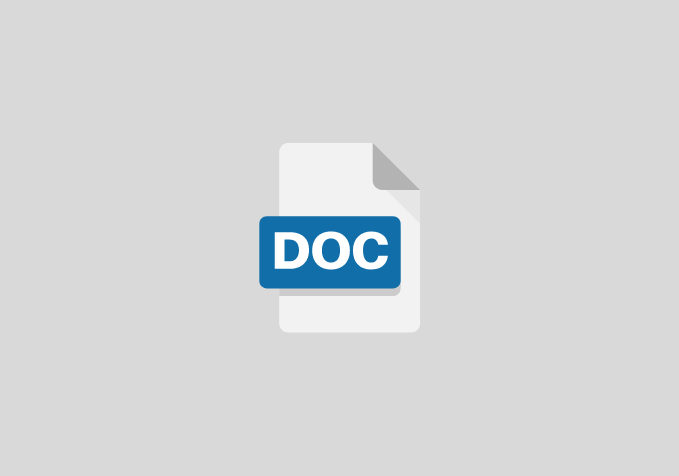The Role of Nigeria Agricultural and Cooperative Bank (Nacb) in the Development of Agricultural in Nigeria
CHAPTER ONE
OBJECTIVES OF THE STUDY
In this study therefore, the researcher hope to accomplish the following objectives:
- To determine how NACB loans/credit granted to the farmers can influences the agricultural output in Nigeria economy.
- To determine policy actions in which agricultural output can be improved through NACB.
CHAPTER TWO
REVIEW OF RELATED LITERATURE
Agricultural Financing Policies in Nigeria
Macroeconomic policies that tend to promote growth of the sector, such as credit-channelling financial policies, price stabilizing monetary and exchange rate policies, and farm incentive- laden fiscal policies including tax exemptions for agricultural businesses, duty-free import of farm machinery, etc. Nigerian agricultural policy provides, among others, for adequate financing of agriculture. The role of finance in agriculture, just like in the industrial and service sectors, cannot be over-emphasized, given that it is the oil that lubricates production. Public expenditure on agriculture has, however, been shown not to be substantial enough to meet the objective of the Government agricultural policies (IFPRI, 2008). For a developing country with a mono-product oil economy such as Nigeria’s, inadequate financing of agriculture portends great danger for many reasons. For one, fluctuating food prices are a precursor of inflation. Secondly, from the expenditure approach to national income accounting, it is likely that Engel’s Law that a large chunk of expenditure in developing economies goes to food holds, meaning that shocks to the domestic agricultural production and supply could be damaging to price stability. There is also the perspective of food security, in an era when food has been used as a weapon of war (United Nations Oil for Food Deal in Iraq) and as bargaining tool (North Korea – United States food deal) , even within Nigeria, the Federal military Government during the Nigeria – Biafra war used food blockade as tool of war. The objective of agricultural financing policies in Nigeria is to establish an effective system of sustainable agricultural financing schemes, programmes and institutions that could provide micro and macro credit facilities for the micro, small, medium and large scale producers, processors and marketers.
CHAPTER THREE
RESEARCH METHODOLOGY
THE ORDINARY LEAST SQUARE (OLS)
The ordinary least square method shall be used in estimating the specified models, since parameters under this method of estimation have the blue property i.e. best linear unbiased estimators. The model will be subjected to the economic a prior theoretical as well as the statistical and economic criteria.
CHAPTER FOUR
DATA PRESENTATION AND ANALYSIS
PRESENTATION OF RESULT:
In this chapter we are going to present the result of the estimate model as well as interpret and analyze it.
CHAPTER FIVE
SUMMARY, CONCLUSIONS AND POLICY RECCOMENDATION
SUMMARY
From the analysis and interpretation of results in chapter four, some findings were made during the process and they are summarized as follows
- There is a positive relationship between Nigeria Agricultural And Cooperative Bank loans and gross domestic products which means that an increase in Nigeria Agricultural And Cooperative Bank loans will bring about an increase in GDP.
- There is a positive relationship also between the financial sector output (FSO) and gross domestic product(GDP), which implies that an increase in financial sector output will result to an increase in GDP
- A positive relationship also exist between government expenditure and gross domestic product which means an increase in government expenditure will bring about an increase in GDP
Since Nigeria Agricultural And Cooperative Bank loans, financial sector output, and government expenditure has a positive impact on gross domestic product, therefore Nigeria Agricultural And Cooperative Bank loans will promote agricultural productivity and development.
CONCLUSIONS
In conclusion, Nigeria Agricultural And Cooperative Bank loans have a vital role to play in the agricultural sector in Nigeria. Because of this, Nigeria Agricultural And Cooperative Bank loan serve as a catalyst for agricultural development in Nigerian economy.
POLICY RECOMMENDATIONS
From the findings that were made the following recommendations include
- Nigeria Agricultural And Cooperative Bank in Nigeria should increase the rate at which they lend loans to farmers which would enable farmer to purchase sufficient equipment, machineries, storage facilities and farming tools for agricultural activities
- The federal government should reduce the interest rate so that agriculturalist would be able to borrow sufficient money from Nigeria Agricultural And Cooperative Bank.
- The central bank of Nigeria (CBN) should make sure that the funds mobilized for loans are effectively disbursed to the farmers through Nigeria Agricultural And Cooperative Bank.
- The federal government should give a directive through Nigeria Agricultural And Cooperative Bank that will encourage the farmers by giving them incentives. This will automatically increase the efficiency of farmers and thereby attract more youths to the agricultural sector.
REFERENCES
- Anyanwu, J.C. (1997). The Structure of Nigerian Economy. Onitsha: HOANEE Educational Publishers Ltd.
- Anyanwu, C. M. (2004). Microfinance Institution in Nigeria: Policy Practice and Potentials. Abuja: CBN Press.
- Ketu, A. A. (2008). Microfinance Banks in Nigeria: An Engine for Rural Transformation. Lagos: Economic Management Press.
- Olajide, O. A. (1980), Financing Enterprises in Nigeria through cooperative. Ibadan: Niser Publishing Co.Ltd.
- Abayomi, Y. P. (1997). “the Agricultural sector in Nigeria the way forward” CBN Bulletin.
- Adubi, A.A (2001). “Agriculture in the Nigeria Economy: An Overview.” Paper Presented at a Workshop of Planning and Management of the Agricultural Sector, Ibadan August14th-25th, 2000.
- CBN. (2005). Microfinance: Policy Regulatory and supervisory framework For Nigeria. Abuja.
- CBN. (2008). “Guidelines and Procedures for the Establishment of Microfinance Banks”. Nigeria: Lagos State, Published by the CBN.
- Jamail, B. (2008). “Microfinance as a tool for Poverty Alleviation in Nigeria.” Paper Presented at Sensitization Workshop on Microfinance Banking in Kano state.


